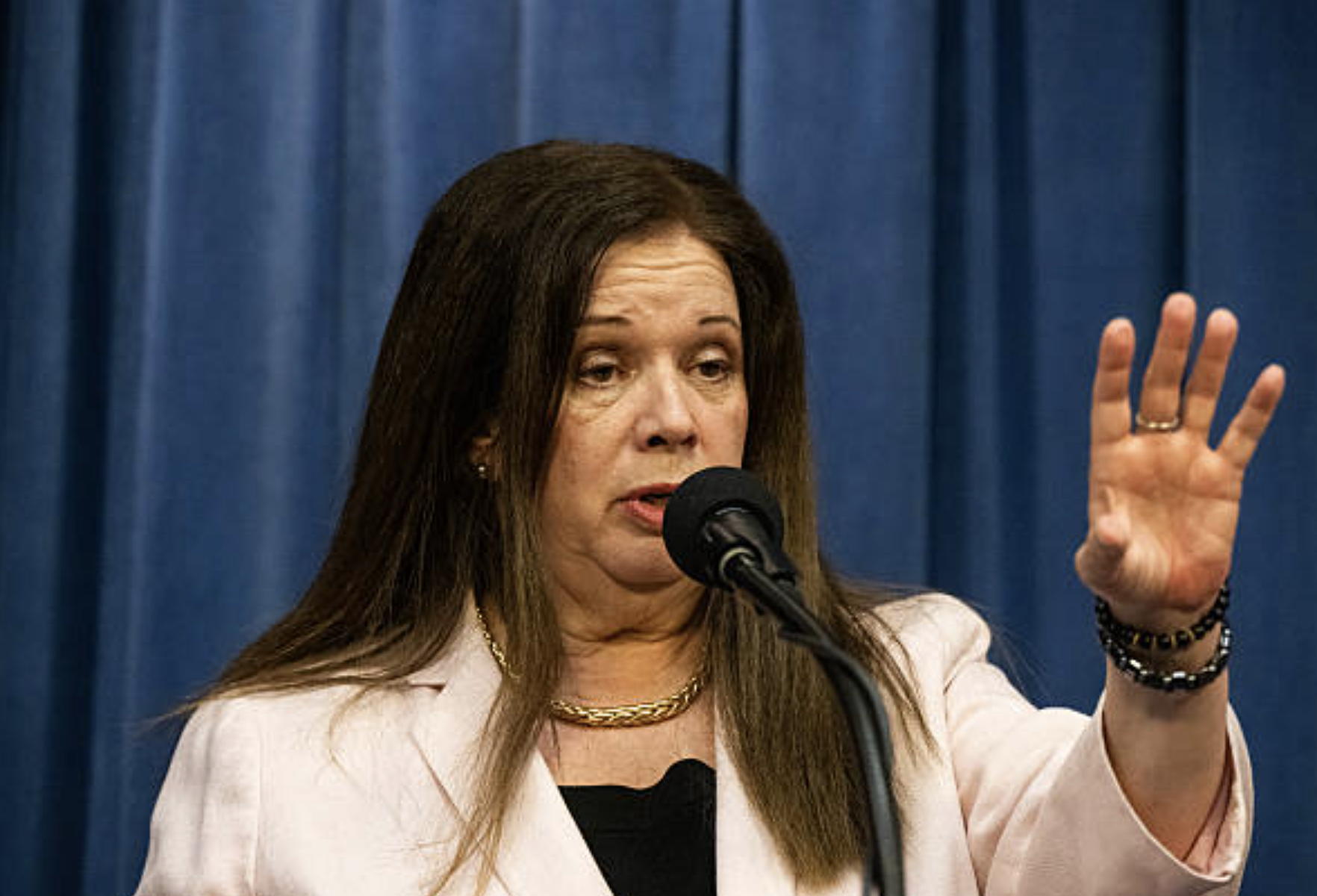Los Angeles City Attorney Hydee Feldstein Soto’s tenure is collapsing under the weight of scandal and dysfunction. Last month, a Los Angeles Superior Court judge rejected the City’s attempt to throw out a lawsuit brought by former Criminal Branch Chief Michelle McGinnis, who says Feldstein Soto fired her for exposing corruption inside the office. The ruling allows McGinnis’s retaliation and discrimination claims to go to trial and dismisses the City’s argument that firing a whistleblower was “protected speech.” Judge Jerrold Abeles wrote that the City’s position would make the anti-SLAPP statute “fatal for most harassment, discrimination and retaliation actions against public employers.”
McGinnis, a 30-year veteran of the office, described Feldstein Soto as a boss who blurred legal lines and abused her authority. In a sworn declaration, she said the City Attorney directed staff to drop cases against donors, pressured prosecutors to charge an anti-Israel protester without evidence, and drank alcohol in the office. When McGinnis raised these issues in an ethics memo, Feldstein Soto allegedly stormed into her office, screamed “How dare you accuse me,” and soon after had her escorted from City Hall by security. The judge found that McGinnis presented ample evidence that she was punished for reporting misconduct.
Some of the behavior detailed in McGinnis’s declaration is shocking for any workplace, let alone a public official in charge of upholding the law. She recounts that Feldstein Soto “frequently consumed alcohol in the office with senior staff” and once referred to a Latino employee as a “fake Latino.” In another instance, Feldstein Soto allegedly “pounded her fists on the table” and screamed, “How dare you accuse me!” after McGinnis circulated an ethics memo warning that prosecution decisions were being influenced by personal relationships and political considerations. McGinnis says Feldstein Soto ordered her to “file charges immediately” against a protester she thought she recognized in a video outside the home of an “Israeli lobbyist,” even though no police report existed. She also describes Feldstein Soto instructing her to dismiss a case against a corporate executive believed to be a donor or acquaintance of the City Attorney. At one point, McGinnis says, Feldstein Soto justified dropping all corporate prosecutions by citing “the downfall of Arthur Andersen,” and told her that “one misdemeanor case could destroy a company.” The declaration portrays an office ruled by fear and favoritism, where ethics complaints were treated as personal attacks and staff who questioned orders risked public humiliation or termination.
The case adds to a growing pattern of turmoil inside Feldstein Soto’s administration. At least two other employees have filed retaliation or discrimination claims, one alleging racial bias in promotions and another accusing the office of mishandling sensitive law-enforcement data. Outside City Hall, she has faced national condemnation for suing a journalist to suppress police records, sponsoring state legislation to weaken California’s public-records law, and spending millions on private law firms without notifying the City Council. Her office also rejected a contract that would have provided free tenant-defense lawyers and advocated for a campaign donor to oversee a troubled affordable-housing nonprofit.
Feldstein Soto has also joined Councilmember Traci Park in obstructing the 100-percent affordable Venice Dell housing project, which would create deeply affordable and permanent supportive housing on city-owned land near Venice Beach. In a lawsuit filed by LA Forward Institute, Feldstein Soto and Park are accused of using their offices to “tie up the project in red tape outside public view,” stalling a development long championed by the city’s housing department and state housing officials. The suit describes a pattern of backdoor interference and delay tactics that have pushed the project to the brink, despite its compliance with state housing law and its approval by the Coastal Commission. The City Attorney’s obstruction has drawn sharp criticism from housing advocates who say her actions threaten to undermine Los Angeles’s ability to meet its state housing obligations.
The accumulation of scandals has triggered an extraordinary political backlash. As the City undertakes charter reform, two councilmembers (Nithya Raman and Tim McOsker) have called for stripping key legal-advisory functions from the elected City Attorney and giving them to an appointed counsel instead. Raman told the reform commission that electing a City Attorney “politicizes” legal advice and that Los Angeles needs to “depoliticize the role of a legal advisor.” McOsker, once a defender of keeping the office elected, now agrees and is exploring models used in other jurisdictions. Both pointed to Feldstein Soto’s tenure as proof that the office’s concentration of power has become untenable.
Even some of Feldstein Soto’s former allies have grown openly frustrated. McOsker blasted her for failing to disclose a $1.8 million bill for just two weeks of work by the outside firm Gibson Dunn. The contract has since ballooned by millions more.
The backlash is reshaping how Los Angeles thinks about the office itself. Progressive groups such as LA Forward have urged the charter commission to consider breaking up the role into multiple parts, with an appointed legal counsel, a legislative-drafting office, and a separate elected prosecutor, arguing that no single politician should control all three. Feldstein Soto, in an interview with CityWatch, called the idea of an appointed counsel a “poison pill” for charter reform, but she has declined further comment as her legal troubles mount.

